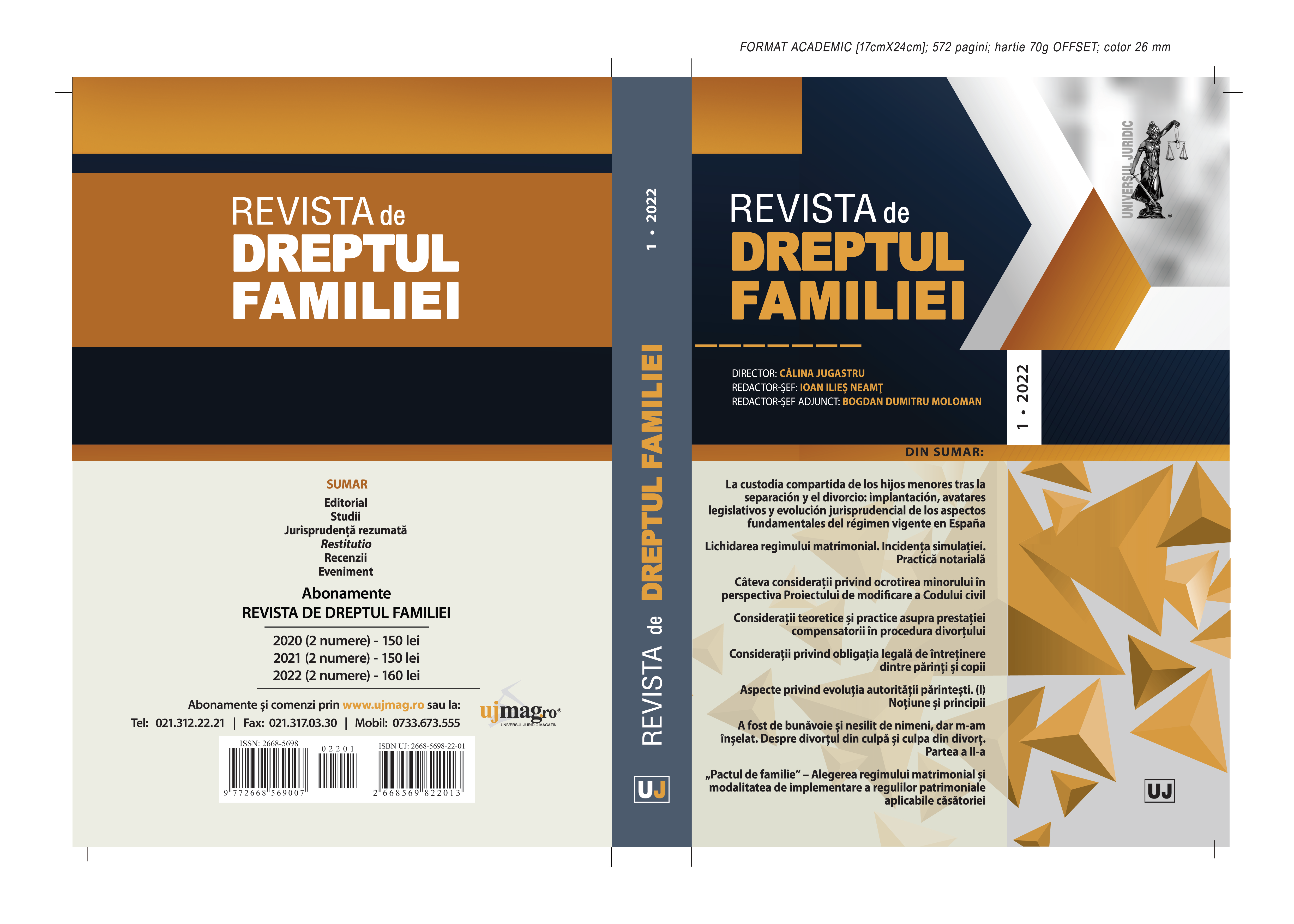Claves para entender la institución de heredero o la atribución de legado bajo la condición de cuidar o asistir al testador o a sus familiares más cercanos: a propósito de la reforma al Código civil cubano
Essential components for understanding the establishment of heirship or the assignment of a legacy under the condition of care or assistance of the testator or his next of kin: on the reform of the Cuban Civil Code
Author(s): Leonardo B. Pérez GallardoSubject(s): Law, Constitution, Jurisprudence, Civil Law
Published by: Universul Juridic
Keywords: family care; institution of heir; legacy; conditions; testamentary mode; elderly people;
Summary/Abstract: The need to protect from inheritance law a vulnerable sector of Cuban society represented by older adults and people with disabilities makes reorder the coordinates in which this sector of civil law has been located. It is therefore necessary to promote private autonomy, so that the testator is empowered with the possibility of subordinating the institution of heir and the attribution of a legacy to the fulfillment of the condition of care and assistance, whether to the testator or close relatives, thereby Family care is enhanced by connecting to the succession phenomenon. It seeks to strengthen family responsibility or whoever benefits from the succession with tasks that tend to guarantee a dignified treatment of the attributing person or their closest relatives as a counterweight to succession liberalities. The reform generated by the new Family Code of Cuba thus also irradiates the Civil Code in the search for a logical symmetry between both normative bodies from the very notion of Law as a coherent system.
Journal: Revista de dreptul familiei
- Issue Year: 2022
- Issue No: 1
- Page Range: 327-359
- Page Count: 33
- Language: Spanish
- Content File-PDF

